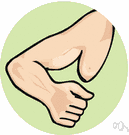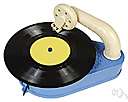limb
(redirected from limbing)Also found in: Thesaurus, Medical, Idioms, Encyclopedia, Wikipedia.
limb
large branch of a tree; an arm, leg, or wing
Not to be confused with:
limn – to draw; portray in words; describe
Abused, Confused, & Misused Words by Mary Embree Copyright © 2007, 2013 by Mary Embree
limb 1
(lĭm)n.
1. One of the larger branches of a tree.
2. One of the jointed appendages of an animal, such as an arm, leg, wing, or flipper, used for locomotion or grasping.
3. An extension or a projecting part, as of a building or mountain range.
4.
a. An extension or part distinguished from the main body or group: the conservative limb of the party.
b. A member or representative of a group: was arrested by a burly limb of the law.
5. Archaic An impish child.
tr.v. limbed, limb·ing, limbs
Idiom: To remove the branches from.
(out) on a limb Informal
In a difficult, awkward, or vulnerable position.
[Alteration (probably influenced by limb) of Middle English lim, from Old English.]
limb 2
(lĭm)n.
1. Astronomy The circumferential edge of the apparent disk of a celestial body.
2. Mathematics The edge of a graduated arc or circle used in an instrument to measure angles.
3. Botany The expanded tip of a plant organ, such as a petal or corolla lobe.
[Middle English limbe, graduated edge of an astronomical instrument, from Old French, from Latin limbus, border.]
American Heritage® Dictionary of the English Language, Fifth Edition. Copyright © 2016 by Houghton Mifflin Harcourt Publishing Company. Published by Houghton Mifflin Harcourt Publishing Company. All rights reserved.
limb
(lɪm)n
1. (Anatomy) an arm or leg, or the analogous part on an animal, such as a wing
2. (Botany) any of the main branches of a tree
3. a branching or projecting section or member; extension
4. a person or thing considered to be a member, part, or agent of a larger group or thing
5. chiefly Brit a mischievous child (esp in limb of Satan or limb of the devil)
6. out on a limb
a. in a precarious or questionable position
b. Brit isolated, esp because of unpopular opinions
vb
(tr) a rare word for dismember
[Old English lim; related to Old Norse limr]
ˈlimbless adj
limb
(lɪm)n
1. (Astronomy) the edge of the apparent disc of the sun, a moon, or a planet
2. (Surveying) a graduated arc attached to instruments, such as the sextant, used for measuring angles
3. (Botany) botany
a. the expanded upper part of a bell-shaped corolla
b. the expanded part of a leaf, petal, or sepal
4. (Archery) either of the two halves of a bow
5. (Geological Science) Also called: fold limb either of the sides of a geological fold
[C15: from Latin limbus edge]
Collins English Dictionary – Complete and Unabridged, 12th Edition 2014 © HarperCollins Publishers 1991, 1994, 1998, 2000, 2003, 2006, 2007, 2009, 2011, 2014
limb1
(lɪm)n.
1. one of the paired bodily appendages of animals, used esp. for moving or grasping; a leg, arm, or wing.
2. a large or main branch of a tree.
3. a projecting part or member: the four limbs of a cross.
4. a person or thing regarded as a part, member, branch, offshoot, or scion of something.
v.t. 5. to cut the limbs from (a felled tree).
6. to dismember.
Idioms: out on a limb, in a risky or vulnerable situation.
[before 900; Middle English, Old English lim]
limb′less, adj.
limb2
(lɪm)n.
the graduated edge of a quadrant or similar instrument.
Random House Kernerman Webster's College Dictionary, © 2010 K Dictionaries Ltd. Copyright 2005, 1997, 1991 by Random House, Inc. All rights reserved.
ThesaurusAntonymsRelated WordsSynonymsLegend:
Switch to new thesaurus
| Noun | 1. |  limb - one of the jointed appendages of an animal used for locomotion or grasping: arm; leg; wing; flipper limb - one of the jointed appendages of an animal used for locomotion or grasping: arm; leg; wing; flipperhind limb, hindlimb - a posterior appendage such as a leg or the homologous structure in other animals forelimb - the front limb (or the homologous structure in other animals, such as a flipper or wing) flipper - the flat broad limb of aquatic animals specialized for swimming appendage, extremity, member - an external body part that projects from the body; "it is important to keep the extremities warm" stump - the part of a limb or tooth that remains after the rest is removed leg - a human limb; commonly used to refer to a whole limb but technically only the part of the limb between the knee and ankle crus - the leg from the knee to foot leg - a structure in animals that is similar to a human leg and used for locomotion thigh - the part of the leg between the hip and the knee arm - a human limb; technically the part of the superior limb between the shoulder and the elbow but commonly used to refer to the whole superior limb cubitus - the arm from the elbow to the fingertips forearm - the part of the superior limb between the elbow and the wrist extremity - that part of a limb that is farthest from the torso appendicular skeleton - the part of the skeleton that includes the pectoral girdle and the pelvic girdle and the upper and lower limbs |
| 2. |  limb - any of the main branches arising from the trunk or a bough of a tree limb - any of the main branches arising from the trunk or a bough of a treetree - a tall perennial woody plant having a main trunk and branches forming a distinct elevated crown; includes both gymnosperms and angiosperms branch - a division of a stem, or secondary stem arising from the main stem of a plant stick - a small thin branch of a tree bough - any of the larger branches of a tree | |
| 3. | limb - (astronomy) the circumferential edge of the apparent disc of the sun or the moon or a planet | |
| 4. | limb - either of the two halves of a bow from handle to tip; "the upper limb of the bow" bow - a weapon for shooting arrows, composed of a curved piece of resilient wood with a taut cord to propel the arrow | |
| 5. | limb - the graduated arc that is attached to an instrument for measuring angles; "the limb of the sextant" octant - a measuring instrument for measuring angles to a celestial body; similar to a sextant but with 45 degree calibration sextant - a measuring instrument for measuring the angular distance between celestial objects; resembles an octant arc - a continuous portion of a circle | |
| 6. |  limb - any projection that is thought to resemble a human arm; "the arm of the record player"; "an arm of the sea"; "a branch of the sewer" limb - any projection that is thought to resemble a human arm; "the arm of the record player"; "an arm of the sea"; "a branch of the sewer"projection - any structure that branches out from a central support |
Based on WordNet 3.0, Farlex clipart collection. © 2003-2012 Princeton University, Farlex Inc.
limb
noun
1. part, member, arm, leg, wing, extension, extremity, appendage She stretched out her cramped limbs.
2. branch, spur, projection, offshoot, bough the limb of an enormous leafy tree
out on a limb independently, separately, in a dangerous position, sticking your neck out (informal) They went out on a limb, voting for a controversial energy bill.
Collins Thesaurus of the English Language – Complete and Unabridged 2nd Edition. 2002 © HarperCollins Publishers 1995, 2002
TranslationsSelect a language:
Spanish / Español
limb
[lɪm] N (Anat) → miembro m, extremidad f; [of tree] → rama fto lose a limb → perder uno de los miembros or una de las extremidades
to be/go out on a limb (in danger) → estar/quedar en peligro; (= be isolated) → estar/quedarse aislado; (= take risk) → correr el riesgo
to tear sb limb from limb → despedazar a algn
see also life A1
Collins Spanish Dictionary - Complete and Unabridged 8th Edition 2005 © William Collins Sons & Co. Ltd. 1971, 1988 © HarperCollins Publishers 1992, 1993, 1996, 1997, 2000, 2003, 2005
limb
(lim) noun1. an arm or leg. miembro
2. a branch. rama
out on a limb on one's own and in a dangerous or disadvantageous position. en peligro
Kernerman English Multilingual Dictionary © 2006-2013 K Dictionaries Ltd.
limb
1. n. extremidad, miembro del cuerpo;
2. porción terminal o distal de una estructura;
___ amputation → amputación de una ___;
___ rigidity → rigidez de la ___ o del miembro;
___ pain → dolor en las extremidades.
English-Spanish Medical Dictionary © Farlex 2012
limb
n extremidad f (form), miembro; residual — (form) muñón mEnglish-Spanish/Spanish-English Medical Dictionary Copyright © 2006 by The McGraw-Hill Companies, Inc. All rights reserved.